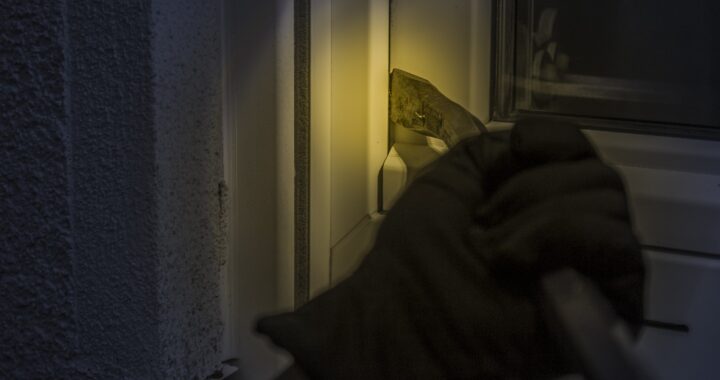How to Get Rid of Skunks in Your Yard

If you are unfamiliar with their appearance or smell, skunks are some of the cutest animals, similar to squirrels. Their white and black coat and fluffy tails make them adorable, and their size makes you want to carry them. That is until you get close enough to smell them. Many homeowners dread skunk infestations because, while they are relatively harmless, they are potential dangers to lawns, foundations, pets, and people.
These small furry animals can become offensive if they feel threatened, using their most deadly weapon: the n-Butyl mercaptan or skunk spray. It is not every time you immediately smell that foul, rotten-egg odor from the animals to alert you of their presence. But you may want to watch for their presence in a yard with trees, wood, or food debris.
Detecting the Presence of Skunks in Your Yard
These creatures are nocturnal, so detecting them may be difficult if you look for their physical presence. They are also not given to live in domestic areas; their natural habitat is the wild. So, they are out of their element when they find themselves outside the wild.
Because of this, skunks may quickly leave your property without any move from you. It is only during extreme periods like winter or when they have babies that they look for shelter where it is available, and your yard may be the best place if it is conducive.
Skunks love beetle grubs, and these tiny larvae do not lie around on the surface. They typically nest under the soil where they can fully grow before emerging. Because of this, skunks dig holes, searching for their favorite food. If you suddenly find conical holes in various areas of your yard, it is a clear sign of a skunk moving about. Early detection is key to preventing a full-blown infestation, empowering you to take action before the situation worsens.
Another tell-tale sign is the musky smell of a female skunk. February is the small animal’s mating time, and when the female is uninterested in mating with a male, it lets out a musky-smelling compound, similar to the smell of sulfur and hard to remove. Autumn or fall is a skunk’s favorite season, so if you smell that awful odor or see new holes during that season, watch out for the small creatures.
Getting rid of them before they mate and have babies on your property is crucial. Once they have babies, removing them may be more challenging since they will keep returning to feed and care for the little ones. You may need skunk removal experts when dealing with such a situation. The same applies if the home they find in your yard is cozy and good since they may become aggressive if you try to remove them, seeing it as an attack, especially with young ones around.
If you are already familiar with its smell, you can quickly detect the presence of a skunk just by getting a whiff of its odor. Since not everyone is familiar with or knows it by sight, using the methods above to detect its presence is important. However, it is not all bad; skunks may help with your yard or garden if you have one.
They are great at removing common garden pests, so you do not have to worry about them. You may find them valuable if you do mind co-habiting with them. That is rarely the case, so take steps to remove the animals if you worry about the safety of kids and pets in your home.
Steps to Getting Rid of Skunks
You can do several things to remove skunks from your yard or under the house. The best step is to prevent their entry, but if they are already on your property, do one or more of the following to discourage them from living on or returning to your yard.
-
Remove Food Sources
One of the best attractants to pests and rodents is food. It can be food debris or piles of uneaten food. They include fruits and vegetables, whether eaten or still on the trees. If you have pets or animals you regularly feed outdoors, food debris may attract skunks and make your yard a splendid living environment.
While they love beetle larvae, skunks also love to eat sugary foods like berries in spring. When autumn nears, they may switch to foods high in fat. If you typically have a lot of food debris in your yard or do not properly seal your garbage cans, you inadvertently invite them and other rodents to nest on your property. The problem may not stem directly from you but from a neighbor or someone close to your yard.
If your neighbor feeds street cats and dogs, they can easily leave food out for feral animals like skunks to eat. Once they mark that area as a food zone, they find homes nearby, including on your property. Therefore, keep your yard clean and garbage cans properly covered to discourage an infestation. Click here to learn more about food and other skunk attractants.
-
Monitor Wood Piles
Wood piles are typical for some homes but may invite different animals to live. While you can keep wood piles in your yard, regularly check them to ensure no unwanted animal is building a home, especially if you worry about skunks and similar creatures.
Also, debris should be regularly removed, and the yard cleaned to ensure there are no cozy areas for breeding. Sweep up leaves and use pest deterrents where applicable. Ensure the safety of pets and plants when using chemicals to keep skunks away from your home.
-
Use Underground Fencing
There is the danger of having issues with your home’s foundation if you have a skunk infestation. Since they are excellent diggers, keeping them away from your decks and porches is crucial.
If you have the training or skill, consider installing underground fences to deter these rodents from burrowing under your house. Such fences curtail their foray into your property and discourage them from building dens for their babies. Simply put, underground fencing is one of the best ways to eliminate skunks.
-
Try Capsaicin
Pepper is a favorite because it makes food spicy and tasty. However, skunks and other rodents detest it because of capsaicin, which is the compound that makes pepper hot. Consider using the compound in liquid form around the yard to deter rodents like skunks without harming them. They hate the smell, taste, and feel of the compound.
Alternatively, try using it in granule form; rodents may eat it before realizing what it is, but it will keep them from returning to your property. Follow this resource: https://www.marthastewart.com/ to learn what not to do when getting rid of skunks.
Wrapping Up
Skunks are not aggressive but can go on the offensive if they feel attacked, especially those with babies. Domesticated areas are not their natural habitat, so a skunk on your property may quickly leave for a more conducive environment. However, food debris, open garbage cans, and searching for a new habitat are some primary reasons to have skunks around you.
Clean your environment and build underground fences to discourage digging and burrowing. In extreme cases, get a professional skunk removal expert to handle the problem.



 Why You Should Test for Asbestos in Toronto Homes
Why You Should Test for Asbestos in Toronto Homes  Is Your Apartment Building Safe? Key Checks Every Resident Should Know
Is Your Apartment Building Safe? Key Checks Every Resident Should Know  Five Innovative Ways AI is Changing Home Security for the Better
Five Innovative Ways AI is Changing Home Security for the Better